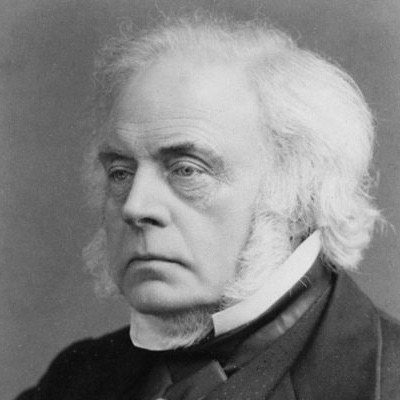Featured
Richard Cobden realised that John Bright, overcome with grief after seeing his young wife die, needed something worthwhile to live for.
The Corn Laws of 1815, designed to protect English farmers from overseas competition, drove up the price of basic foods and plunged working families into poverty. John Bright, then working in his father’s Rochdale mill, joined Richard Cobden’s repeal campaign on September 10th, 1841, as he sat mourning his young wife Elizabeth, ‘lying still and cold in the chamber above us’.
John Bright declared it was time stop fighting wars around the world for ‘British interests’.
On January 13th, 1878, John Bright MP assured his constituents in Birmingham that reports of an imminent Russian invasion of Europe were utter delusion. Some in the Commons said that sending troops to aid Turkey in the Russo-Turkish War (now a year old) was in the ‘British interest’, but Bright reminded them how the Crimean War in 1853-56 had achieved nothing but a million dead young men.
John Bright dismissed fears that digging a tunnel under the English Channel would encourage a French invasion.
In the 1880s, when the idea of a Channel Tunnel was being seriously considered in Parliament, senior ministers warned anxiously and apparently seriously of the dangers of encouraging a French invasion. John Bright, who as President of the Board of Trade had been strongly in favour of the project, made no attempt to conceal his scorn when he spoke to constituents in Birmingham on June 15th, 1883.
The Victorian working man had John Bright’s respect and unwavering support, but he could expect no special favours.
On January 28th, 1875, John Bright MP gave a speech in Birmingham during which he regretted the pressure put on voters in manufacturing towns to elect working-class candidates. A Mr Joseph Hulme of Burslem (part of Stoke-on-Trent) wrote to express surprise at this seeming prejudice, drawing the following reply.
If Prime Minister Benjamin Disraeli really wanted a better-educated public, he must tackle the high cost of living.
As the 1860s progressed, calls grew for a Government shake-up of the education system. But in February 1868, John Bright MP, one of the country’s leading Liberals, told his Birmingham constituents that local communities would handle the three Rs without any help from fancy theories, if Government policy hadn’t made daily living into such a desperate scramble to survive.
As Prime Minister Benjamin Disraeli stoked fears of Russian aggression, John Bright said that Russia was only threatening when she felt threatened.
In 1879, British politicians were warning that we must occupy Afghanistan to prevent Russia invading India, and that Emperor Alexander II’s military operations in the Balkans were not a liberation but an excuse to sweep across Europe that must be met with force. John Bright watched this escalation with alarm, and urged the Government to make our peace with Russia as we had with France – by trade.
John Bright told his Birmingham constituents that if Britain was indeed a great nation, it was because her public was contented and not because her empire was wide.
After John Bright MP criticised British imperial policy in India, saying it was too much about the glories of empire and too little about the condition of the people, a Calcutta newspaper scolded him and reminded him solemnly of the greatness of Rome. But Bright was unrepentant, and speaking to his constituents in Birmingham on October 29th, 1858, he brought his lesson closer to home.
